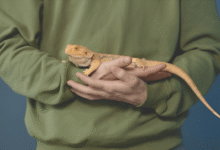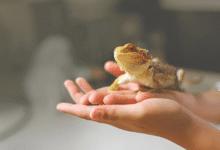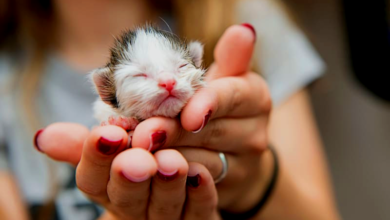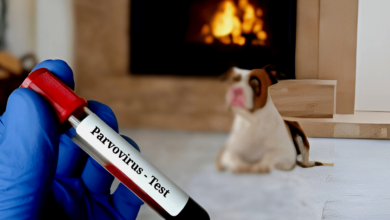
How to Build a Pet First Aid Kit at Home Georgia Edition
Pet first aid kit essentials for Georgia pet owners Be prepared for emergencies with this must-have guide for your furry friend's safety.
When it comes to keeping your furry friends safe, having a pet first aid kit is just as essential as one for humans. In Georgia, where outdoor adventures, hot summers, and encounters with local wildlife are common, being prepared can make all the difference in an emergency. A well-stocked pet first aid kit ensures you’re ready to handle minor injuries, allergic reactions, or unexpected mishaps until you can reach a veterinarian.
Whether you’re exploring Georgia’s hiking trails, relaxing in your backyard, or simply at home, accidents can happen anytime. This guide will walk you through the must-have items for your pet first aid kit, tailored to Georgia’s unique climate and risks. From treating insect bites to handling heat exhaustion, you’ll learn how to assemble a kit that keeps your pet protected and gives you peace of mind.
How to Build a Pet First Aid Kit at Home Georgia Edition
Why Every Georgia Pet Owner Needs a Pet First Aid Kit
Georgia’s diverse environment ranging from humid coastal areas to wooded mountains—means pets are exposed to various risks. A Pet First Aid Kit is not just a convenience; it’s a necessity. In emergencies like snake bites, allergic reactions, or heat exhaustion, quick action can save your pet’s life. Since veterinary care may not always be immediately accessible, especially in rural areas, having essential supplies on hand can make a crucial difference.
Essential Supplies for Your Pet First Aid Kit
Basic Medical Supplies
Gauze Pads & Rolls Use for covering wounds, controlling bleeding, or creating makeshift splints. Include multiple sizes (2×2 and 4×4 inch pads plus 2-inch rolls). Change dressings daily or when soiled. Adhesive Tape & Self-Adhering Bandages. Vet wrap or cohesive bandages stick to themselves but not fur. Secure gauze without painful removal. Avoid regular adhesive bandages which can damage skin.
Medications and Treatments
Antihistamines (like Benadryl) For allergic reactions from insect bites or stings (consult your vet for proper dosage). Electrolyte solution or Pedialyte Helps with dehydration, especially in Georgia’s hot summers. Antibiotic ointment Prevents infection in minor cuts and scrapes. Eye wash solution Useful for flushing out debris or irritants.
Georgia-Specific Additions
Snake bite kit Georgia is home to venomous snakes like copperheads and rattlesnakes; a compression bandage can slow venom spread. Tick prevention tools Ticks in Georgia can carry Lyme disease; include a tick remover and preventive treatments. Cooling pads or spray Heatstroke is a serious risk; these help lower body temperature quickly.
Comfort and Emergency Items
Blanket or towel For warmth, restraint, or creating a makeshift stretcher. Muzzle (even for friendly pets) Injured animals may bite out of fear or pain. Emergency contact list Include your vet’s number, the nearest emergency clinic, and poison control (ASPCA Poison Control: 888-426-4435).
How to Use Your Pet First Aid Kit in Common Emergencies
Cuts and Wounds
If your pet gets a minor cut, clean the area with antiseptic wipes and apply pressure with gauze to stop bleeding. For deeper wounds, wrap the injury and seek veterinary care immediately.
Heatstroke
Georgia’s summers can be brutal. Signs of heatstroke include excessive panting, drooling, and lethargy. Move your pet to a cooler area, apply cool (not icy) water, and offer small sips of water while heading to the vet.
Snake Bites
If bitten by a venomous snake, keep your pet calm and immobilized. Do not apply ice or a tourniquet instead, use a compression bandage and get to a vet immediately. Clean wounds 2-3 times daily until healed. Hydrogen Peroxide (3%) ONLY use to induce vomiting when directed by vet/poison control. Fresh bottle (replaced every 3-6 months as it degrades).
Tick Removal
Using tweezers or a tick remover, grasp the tick close to the skin and pull straight out. Disinfect the area and monitor for signs of infection or illness.Antiseptic Wipes/Solution. Chlorhexidine or povidone-iodine solutions (diluted). Alcohol-free wipes for sensitive areas.
Poisoning
If your pet ingests something toxic (like antifreeze or certain plants), call poison control or your vet immediately. Do not induce vomiting unless instructed. Never use for wound cleaning (damages tissue). Blunt-Tip Scissors Safely cut bandages or matted fur. Rounded tips prevent accidental stabbing. Include small pair for precise work.
Maintaining Your Pet First Aid Kit
Schedule Quarterly Checkups
Mark calendar reminders for January/April/July/October checkups. Remove and properly dispose of expired medications (especially eye drops, liquid solutions). Check integrity of sealed items (sterile gauze, antiseptic wipes). Verify emergency contact list is current (include regular vet, 24-hour emergency clinic, ASPCA Poison Control). Test equipment functionality (thermometer batteries, flashlight). Restock frequently used items (minimum 3-4 gauze pads, 2 rolls of vet wrap).
Smart Storage Solutions
Ideal locations: Mudroom bench, under kitchen sink (in waterproof container), or designated emergency closet. Use clear, labeled plastic bins with secure lids (Rubbermaid or Sterilite recommended). Include silica gel packets to control Georgia’s humidity. Avoid temperature extremes: Never store in garage, attic, or car trunk long-term. Create duplicate mini-kits for car and travel use. Use drawer organizers to separate supplies by category (wound care, medications, tools).
Household Training Protocol
Conduct bi-annual family training sessions (schedule with seasonal time changes). Create instruction cards with Step-by-step wound cleaning diagrams. Proper restraint techniques for injured pets. Pet CPR basics (include rescue breathing ratios). Post emergency flow chart near kit When to use kit vs. when to go to vet immediately. Poison response protocol. Heat stroke action steps. Practice scenarios using stuffed animals or willing pets.
Georgia-Specific Customizations
Snake Bite Preparedness Include suction device (approved types only). Benadryl (proper dosage chart by weight). Compact ice packs. Tick Prevention Fine-tip tweezers and commercial tick removers. Small ziplock bags for tick identification. Alcohol prep pads for disinfection. Heat Emergency Supplies Cooling gel pads. Rectal thermometer with lubricant. Oral syringes for hydration. Storm Preparedness Glow stick for power outages. Pet rescue sticker for windows. Recent photo for identification.
Proactive Preparedness Plan
Enroll in pet first aid certification (Red Cross offers Georgia-specific courses). Create pet medical records folder to keep with kit Vaccine history, Medication list, Microchip information. Practice monthly skills Taking pulse (femoral artery technique), Checking gum color, Applying muzzle safely, Join Georgia pet owner networks for local hazard alerts. Coordinate with neighbors for pet emergency plans.
Read More: The Best Supplements for a Healthy and Happy Pet
Conclusion
Putting together a pet first aid kit is a simple yet crucial step in safeguarding your pet’s health, especially in Georgia’s diverse environment. From snake bites to heatstroke, having the right supplies on hand can help you act quickly in an emergency. By customizing your pet first aid kit with Georgia-specific essentials, you’ll be prepared for whatever challenges come your way whether you’re hiking in the North Georgia mountains or enjoying a day at a Savannah park.
Remember, a pet first aid kit is only effective if you know how to use it. Take the time to familiarize yourself with basic pet first aid, keep your vet’s contact info handy, and check your kit regularly to replace expired items. Your furry companion relies on you for safety, and with a well-prepared pet first aid kit, you can give them the best care possible no matter where Georgia takes you. Stay proactive, stay prepared, and keep your pet protected!
FAQs
What should I do if my pet is bitten by a snake in Georgia?
Keep your pet calm, restrict movement, and seek immediate veterinary care. Do not cut the wound or apply ice.
How often should I check my Pet First Aid Kit?
Inspect it every 3-6 months, replacing expired items and restocking used supplies.
Can I use human medications for my pet?
Some, like Benadryl, are safe in proper doses, but always consult your vet first.
What’s the biggest summer risk for Georgia pets?
Heatstroke always provide shade, water, and never leave pets in a parked car.
Where should I store my Pet First Aid Kit?
Keep it in an easily accessible place, like a closet or car, and ensure all family members know its location.







